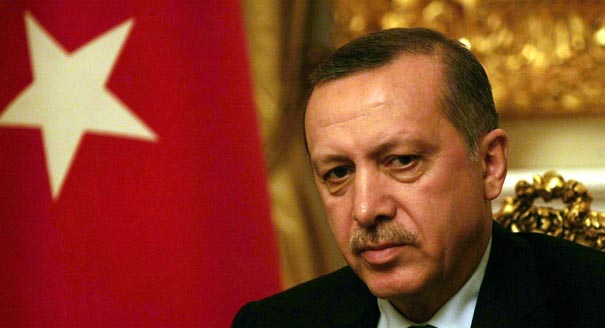This piece is part of the Global Dynamics of the Syrian Conflict series, in which Carnegie experts from all over the world analyze the strategic and geopolitical interests at play in the ongoing civil war. View the full series here.
Before the onset of the Arab Spring, Syria was the poster child of Turkey’s “zero problems with neighbors” policy. Following years of tension, Ankara and Damascus had initiated a process of rapprochement leading to joint cabinet meetings and ambitious plans for a Middle East common market that they would spearhead. Despite criticism from its Western allies, Turkey had defended this policy by arguing that its engagement with the regime of Syrian President Bashar al-Assad was intended to curb Damascus’s reliance on Tehran.
To strengthen its case, Ankara mediated several rounds of talks between Syria and Israel that brought the parties seemingly close to a lasting agreement. Turkish policymakers came to believe they had acquired a degree of influence over Assad and his regime.
As such, when the Arab uprisings reached Syria in the spring of 2011, Turkish policymakers initially felt confident they could convince the Syrian leadership to reform. Turkish Prime Minister Recep Tayyip Erdoğan appealed directly to Assad, Foreign Minister Ahmet Davutoğlu made several trips to Damascus, and the head of Turkey’s state-planning organization even helped with the economic reform agenda of the Syrian government.When the Assad regime failed to heed Turkey’s advice and instead responded to domestic protests with overwhelming force, Ankara’s reaction was very severe. By August 2011—five months into the uprising—the Turkish government had switched positions, and it eventually began to call for and work toward regime change in Syria.
This abrupt reversal reflected a fundamental shift in Turkish foreign policy. For years Turkey was a status quo power in the region, respecting the sovereignty of neighboring countries and refraining from aligning itself with the more interventionist attitudes of its Western partners (the Turkish parliament famously voted against allowing the United States to use Turkish territory in the war against Iraq that began in 2003). This inclination also led Ankara to initially oppose a NATO intervention in Libya in 2011.
Shortly after Libya, however, the Turkish government changed its long-standing position and without much internal debate adopted a much more belligerent and interventionist attitude. The intellectual underpinning of this strategic shift was Turkey’s newfound objective to position itself as a regional, Muslim champion for democratization in the Arab world.
Turkey’s about-face in Syria was also driven by the mistaken belief that after the fall of autocratic governments in Egypt, Tunisia, and Libya, the collapse of the Assad regime was inevitable. Ankara believed that under a new, democratic order, Syria would be ruled by a Muslim Brotherhood party that would allow Turkey’s ruling Justice and Development Party (AKP) to extend its political influence in Syria. Moreover, the Turkish government misjudged the international community’s, and particularly Washington’s, appetite for an international intervention in Syria.
Still, Turkey took a hard line. To accomplish its objective of regime change, Ankara adopted a twin-track approach of heightening the international isolation of the Syrian regime while helping the Syrian civilian and, eventually, military opposition. At first, Turkey called on the United Nations Security Council to back a decision to intervene in Syria on humanitarian grounds. It later appealed to Washington to set up a no-fly zone in the north of the country that would have provided protection to the opposition forces. Neither suggestion was heeded.
At the same time, Turkey became active in efforts to enhance the effectiveness of the Syrian opposition. It started to host the Syrian National Council (SNC), the civilian pillar of the opposition, as well as the rebel Free Syrian Army. Turkish diplomats strove to unify the fractured opposition under the banner of the SNC, though their efforts were unsuccessful. Turkey gradually increased its support to the military opposition. In collaboration with its partners in the Gulf—Saudi Arabia and Qatar—Ankara provided military assistance. And Turkey declared an open-door policy toward Syrian refugees.
But the situation has not panned out as Turkey hoped it would. The Assad regime has proven more resilient than either Ankara or Western governments anticipated, causing Syria’s humanitarian crisis to spread beyond its borders. Turkey now hosts approximately 750,000 Syrian refugees, with around 200,000 in refugee camps. Speaking in early May at a ministerial summit for neighbors of Syria held in Jordan, Davutoğlu stated that Turkey’s material outlays have reached $3 billion. But more than the financial burden, the significant number of Syrians hosted in Turkey—who have no real prospect of going back to their country of origin—is starting to create social tensions between the growing number of Syrian refugees and Turkey’s own Alawite population. The government has no medium- and long-term plan to integrate these displaced persons into Turkish society, but it needs one.
Ankara should also ask for a more equitable burden-sharing arrangement with its partners in the West, particularly the European Union. EU countries should be ready to accept more Syrian refugees. The EU has accepted the resettlement of only about 60,000 Syrian refugees since the start of the current conflict.
In addition, the Turkish government’s nondiscriminatory approach to the Syrian military opposition and its previous unwillingness to impose stricter border controls have exacerbated the threats posed by extremist networks in Turkey. In light of these concerns, Ankara has now become more selective in its assistance to Syrian rebels. But this policy change is in itself creating new security risks, with al-Qaeda-linked groups like the Islamic State of Iraq and the Levant (commonly known as ISIS) issuing direct threats to Ankara and Turkish interests.
Turkey is faced with a significant challenge indeed—recalibrating its expectations and its policy toward Syria in the face of the Syrian regime’s resilience and Assad’s gradual recovery of his eroded international legitimacy.







